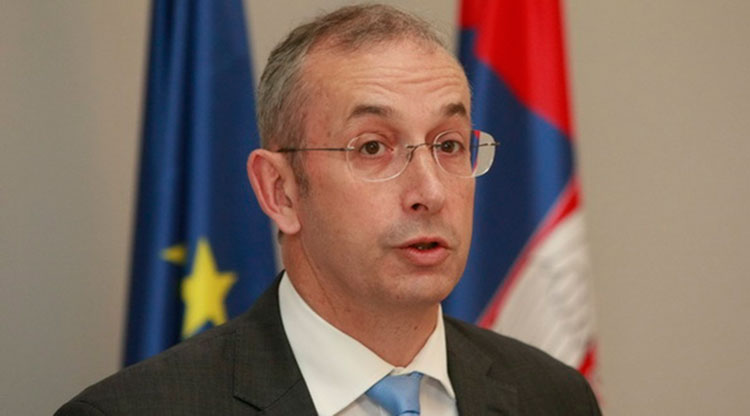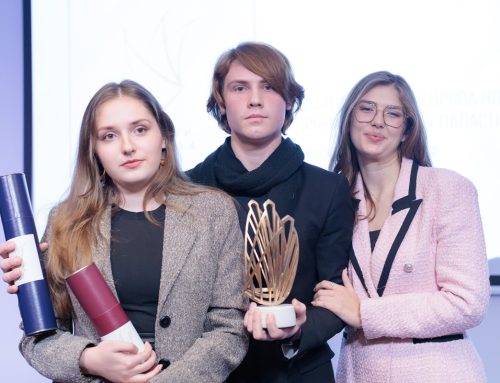Appearing on RTV Vojvodina’s Pravi ugao programme, Head of the EU Delegation to Serbia Ambassador Michael Davenport said he hoped that new negotiating chapters would be opened by the end of 2016 and added that the 2016 European Commission Report on Serbia reflected Serbia’s continued progress in the process of European integration. He added that he stood ready to return to the National Assembly at the invitation of the Speaker and the President of the European Integration Committee and present the Report.
Agreement on telecommunications incentive to Association of Serb Municipalities
The Ambassador described the agreement on telecommunications reached within the Brussels dialogue as a positive shift. “We want this to act as an incentive to other elements of the Brussels dialogue, particularly to the establishment of the Association of Serb municipalities and energy, and we want to see substantial progress in the overall normalisation of relations,“ Ambassador Davenport said and added that it was necessary to implement each and every element of the Brussels agreement.
“I hope that new chapters would be opened,“ he said and added that the European Commission made a recommendation concerning the opening of chapter 5, dealing with public procurement. “Chapter 5 is crucial to increase the efficiency of fight against corruption,“ EU Ambassador said, adding that he was optimistic about the EU Member States reaching a decision on this matter.
Davenport said that Serbian Government was expected to present its negotiating position for another 15 chapters, including the ones previously mentioned by the Head of Serbia’s negotiating team Tanja Miscevic which deal with science and education.
Speaking about the incident when he was prevented from presenting the Report and discussing it with MPs, Davenport said that he stood ready to return to the National Assembly and resume the discussion with MPs at the invitation of the Speaker and the President of the European Integration Committee. “The EU Delegation in Serbia has great respect for the National Assembly and is, of course, always ready to respond to an invitation to talk. If the conditions are not in place, perhaps there will be no discussion. But it is much too early to talk about it. I am yet to receive an invitation so let’s just wait for this matter to settle.“
Asked to describe Brussels reaction to the incident, Davenport says: “I think it took them completely by surprise. They probably did not fully understand why the discussion was cancelled and why the Committee could not provide conditions for a normal conversation. It was an unusual situation.“
EU Ambassador said the Delegation had good relations with Serbian Government, adding that it had clearly set European integration as its strategic goal. “Prime Minister’s exposé clearly stated that the EU accession is at the very top of Serbia’s agenda,“ Davenport reminded and added that the EU Delegation he was the Head of had, as he put it, “only one mandate – to help and support Serbia in its efforts to join the EU.“
The Government uses most of the EU funds
Davenport said that Serbia had made continuous progress on the EU path and added that in its Report, the EU took notice of tangible results produced by economic reform “in terms of economic growth, reducing budget deficit and improving business environment. The unemployment has been reduced, although it still remains high, particularly among young people,“ Davenport said and added that “the Report urged the Government to move forward with the rather challenging task of restructuring the public sector – a major priority of the IMF as well.“
Davenport said the Report pointed to certain shortcomings in several areas that could be eliminated by following specific recommendations. Citing the example of environmental protection and the construction of waste water and waste management facilities, he stressed that the area still lacked a substantial number of successful projects. “Also, when it comes to agriculture, we are still awaiting adequate conditions to start using the funds which will be of major importance for farmers,“ EU Ambassador said.
He pointed to the need of independent judiciary and added that the Report made a specific recommendation concerning the appointment of judges and prosecutors. He also said Serbia was expected to adopt the long-awaited new law on Anti-Corruption Agency which the EU had supported both financially and through expertise.
Asked to comment on why the EC Report failed to mention “the Savamala case” – a remark made by a portion of the general public – Ambassador Davenport said the Report generally did not deal with individual cases. “The Report says it necessary to implement recommendations made by independent bodies and in the case of Savamala, we have repeatedly pointed to Ombudsman’s recommendations. The demolition of such facilities outside the usual procedures is unacceptable wherever it happens. Also, the citizens are undoubtedly entitled to have their rights protected by the authorities. Now, it is up to Prosecutor’s Office to reach a decision and up to relevant authorities to act on such a decision in accordance with the law,” Davenport said.
He denied the accusations made by certain tabloids about the EU funding movements and groups voicing criticism against the Government or contributing to destabilisation. “The Government uses most of the EU funds. Above all, the goal is to implement IPA funds in Serbia and any other candidate country and thus encourage efforts toward European integration,“ Davenport said and added that the EU pursued that same goal by supporting the civil sector. He reminded that civil society organisations participated in the process of European integration through the National Convention on the EU.




